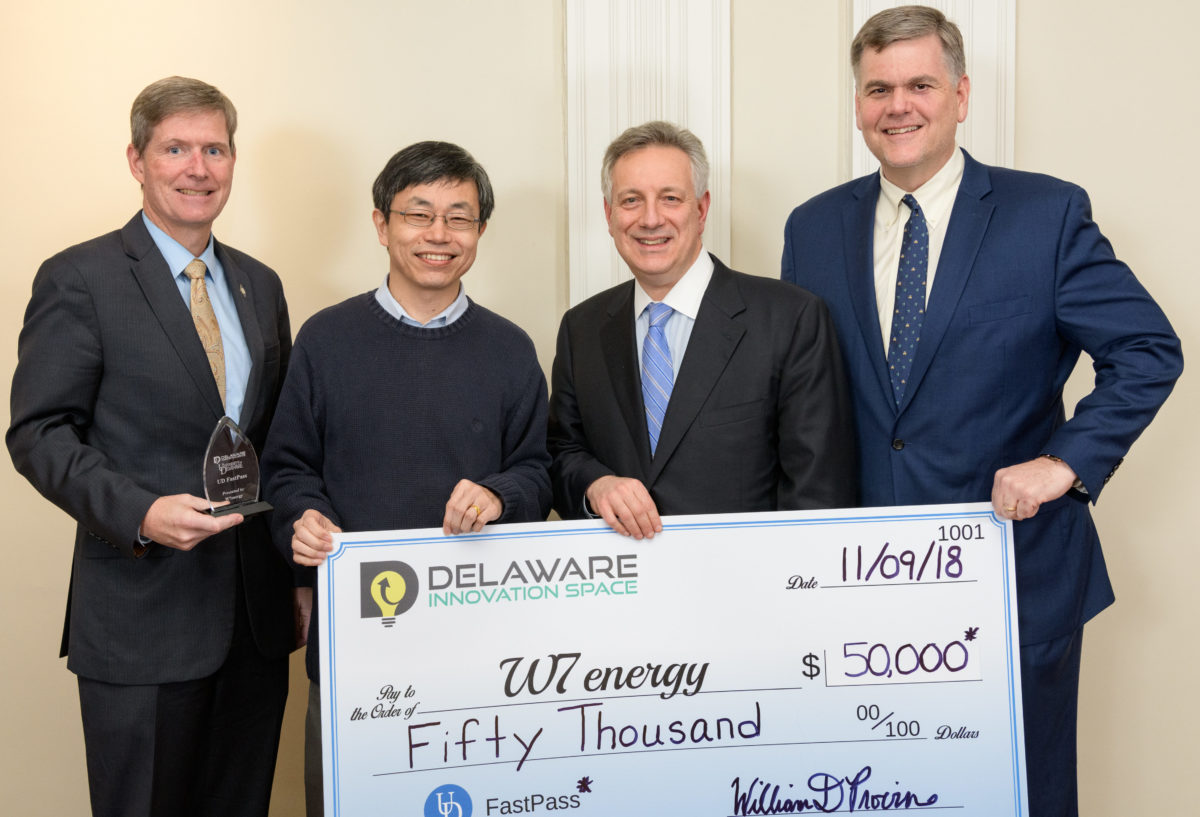W7Energy, the Delaware Innovation Space-based startup with University of Delaware-developed technology, has been awarded $3.4 million in funding from the U.S. Department of Energy’s Advanced Research Projects Agency-Energy, according to UDaily.
The funds will help advance and commercialize a new class of polymer membranes used to develop affordable zero-emission fuels cells for electric cars.
Founded by Yushan Yan, the Henry B. du Pont chair of chemical and biomolecular engineering at UD and a fellow of the National Academy of Inventors, W7Energy got started in late 2017 when it received a $150,000 early startup grant from UD and the Unidel Foundation. It also received a $78,000 investment by UD’s Horn Entrepreneurship while based at the university.
In December 2018, W7Energy received a $50,000 FastPass Award from the Delaware Innovation Space, located on the DuPont Experimental Station campus. That equity-free startup package included a free year of lab space and access to all facilities, equipment and business mentoring.
In September, W7Energy received one of the first $100,000 Delaware EDGE Grants for STEM startups, and has also landed about $1 million so far in investment.
“Having the initial support from Horn, Unidel and Delaware Innovation Space allowed us to become operational more quickly,” Yan told UDaily. “This permitted the team to advance both the company and the technology, all of which allowed us to be competitive in going after funding from the Department of Energy, and later, the state of Delaware.”
The technology W7Energy is developing is a class of chemically stable, ionically conductive hydroxide exchange membranes for hydrogen or ammonia fuel cells. These fuel cells produce zero emissions, which the startup — and the public and private entities that support it — hopes to be the standard in vehicles in the relatively near future.
Before you go...
Please consider supporting Technical.ly to keep our independent journalism strong. Unlike most business-focused media outlets, we don’t have a paywall. Instead, we count on your personal and organizational support.
3 ways to support our work:- Contribute to the Journalism Fund. Charitable giving ensures our information remains free and accessible for residents to discover workforce programs and entrepreneurship pathways. This includes philanthropic grants and individual tax-deductible donations from readers like you.
- Use our Preferred Partners. Our directory of vetted providers offers high-quality recommendations for services our readers need, and each referral supports our journalism.
- Use our services. If you need entrepreneurs and tech leaders to buy your services, are seeking technologists to hire or want more professionals to know about your ecosystem, Technical.ly has the biggest and most engaged audience in the mid-Atlantic. We help companies tell their stories and answer big questions to meet and serve our community.
Join our growing Slack community
Join 5,000 tech professionals and entrepreneurs in our community Slack today!

The person charged in the UnitedHealthcare CEO shooting had a ton of tech connections

From rejection to innovation: How I built a tool to beat AI hiring algorithms at their own game

Where are the country’s most vibrant tech and startup communities?



